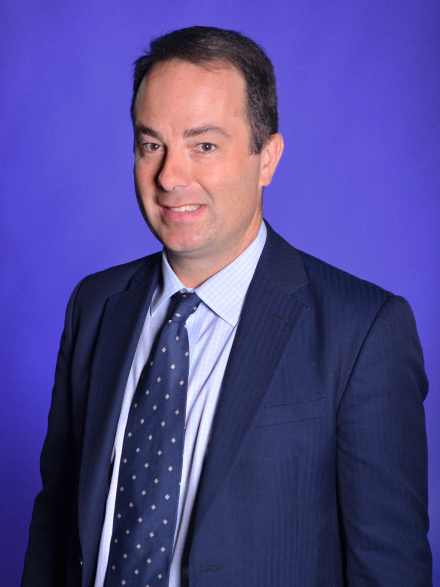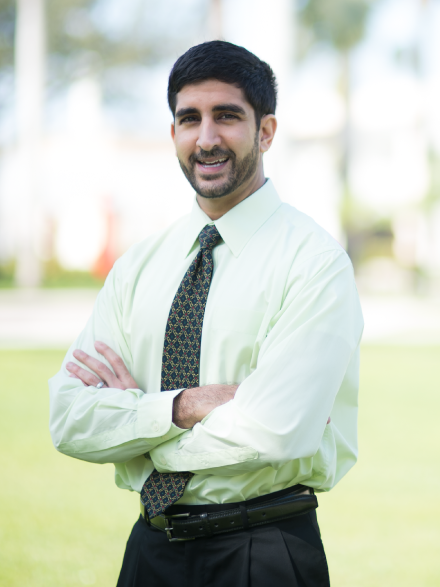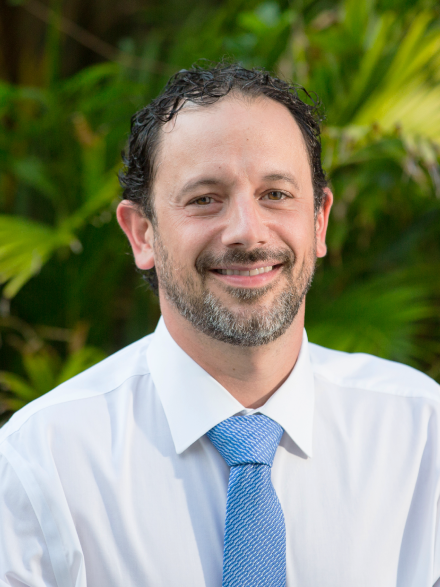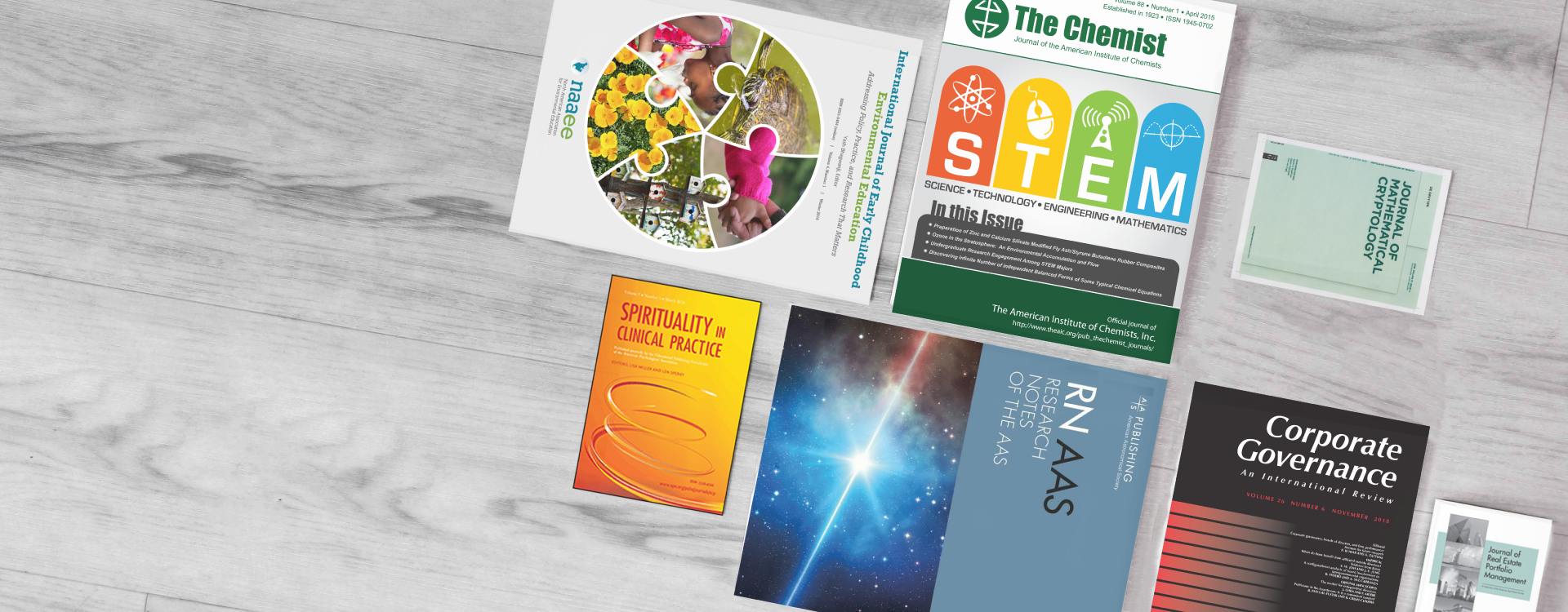Faculty Take on Lead Editing Roles at Peer Review Journals
By Cammi Clark

It’s about impacting research. It’s about staying at the forefront of your field. And, it’s about making a difference in the world.
Those are some of the top reasons why FAU faculty choose to take on leadership editing roles or, in some cases, launch new peer-reviewed academic journals. Peer review is essential in academic research; the process helps maintain quality and integrity in research.
Douglas Cumming, Ph.D., top right, a professor in the College of Business, is one of FAU’s newer faculty members. Topping a long list of his journal roles: founding editor-in-chief of Annals of Corporate Governance and editor-in-chief of the Journal of Corporate Finance. Cumming also serves on the editorial boards of more than 25 journals, including Corporate Governance: An International Review, the Journal of International Business Studies and Journal of Banking and Finance.
“Serving as an editor is a great opportunity to contribute to the profession, and to shape and focus the direction of impactful scholarship,” said Cumming. He first dabbled in journal editing by leading some special issues, being a guest editor for regular issues and producing issues for conferences.

Even though editing the industry’s top academic journals can be time consuming and is not an easy job (there are often hiccups along the way), there are certainly advantages of being an editor, Cumming said.
“Certainly, if you're not careful, you can spend your whole day dealing with emails from authors and reviewers and other people, and end up doing a lot of reading,” he said. “But, it's a learning experience every day.”
Sameer Hinduja, Ph.D., middle right, professor in the School of Criminology and Criminal Justice, is the co-founder and co-editor-in-chief of the International Journal of Bullying Prevention, a new peer-reviewed journal from Springer Publishing. He said creating and editing such a field-specific journal keeps him at the epicenter of new developments in this area.
“There has never before been a singular journal specifically devoted to bullying and cyberbullying prevention, as articles have historically been published across multiple disciplines since research is conducted from a wide range of perspectives,” Hinduja said.

“By creating and helming this journal, I stay at the forefront of our field and connect with a wider array of scholars who care about the topic like I do. Together, we are contributing to a growing body of knowledge that will inform policy and practice in schools, workplaces, and communities. Ultimately, we are helping people to live well by building safe social environments.”
Similarly, John L. Renne, Ph.D., bottom right, of the School of Urban and Regional Planning, is co-editor for a new section of the international journal, Transportation Research, Part D: Transport and Environment, focusing on disasters and resilience.
“A scholar’s job is to try to answer research questions that others haven't looked at before, that are important to our society, that are going to make a meaningful difference to the quality of life for everybody,” Renne said. “Being an editor, you have a really unique perspective to be able to help. You're kind of a gatekeeper for the field. It's dynamic, and it's very rewarding.”
If you would like more information, please contact us at dorcommunications@fau.edu.
Numerous FAU faculty quietly lead peer-reviewed academic journals to position themselves at the forefront of their fields. Here is a look at some who hold higher-level editing positions at those journals.
- David Bjorklund, Ph.D., editor, Journal of Experimental Child Psychology
- Steven Bressler, Ph.D., action editor, Neural Networks
- Brett Laursen, Ph.D., editor-in-chief, International Journal of Behavioral Development
- Spyros Magliveras, Ph.D., co-founder and managing editor, Journal of Mathematical Cryptology
- Ata Sarajedini, Ph.D., science editor, Journals of the American Astronomical Society: The Astrophysical Journal Letters; The Astronomical Journal; The Astrophysical Journal; The Astrophysical Journal Supplement Series; and Research Notes of the AAS
- Rainer Steinwandt, PhD., managing editor, Journal of Mathematical Cryptology
- Paul Yiu, Ph.D., editor-in-chief, Forum Geometricorum
- Charlotte Barry, Ph.D., editor, Journal of Art and Aesthetics in Nursing and Health Sciences
- Beth King, Ph.D., co-editor, Journal of Art and Aesthetics in Nursing and Health Sciences
- Maria Ordonez, D.N.P., co-editor, Journal of Art and Aesthetics in Nursing and Health Sciences
- Rose O. Sherman, Ed.D., editor-in-chief, Nurse Leader
- Luis Garcia, Ph.D., co-editor, Financial Analysts Journal
- Ken H. Johnson, Ph.D., editor, Journal of Housing Research (JHR) and publications director, American Real Estate Society which manages: JHR, Journal of Real Estate Research; Journal of Real Estate Portfolio Management; Journal of Real Estate Literature; Journal of Sustainable Real Estate; and Journal of Real Estate Practice and Education
- Paul S. Koku, Ph.D., J.D., editor-in-chief, The International Journal of Marketing and Social Policy
- Donald Neubaum, Ph.D., editor, Entrepreneurship: Theory and Practice
- Yash Bhagwanji, Ph.D, founding and executive editor, International Journal of Early Childhood Environmental Education
- David Devraj Kumar, Ed.D., editor-in-chief, The Chemist (official Journal of the American Institute of Chemists)
- Deborah L. Floyd, Ed.D., editor-in-chief, Community College Journal of Research and Practice
- Len Sperry, Ph.D., M.D., editor, The Journal of Individual Psychology; founding editor, Spirituality in Clinical Practice; editor-in-chief, The American Journal of Family Therapy
- Manhar Dhanak, Ph.D., editor, Ocean Engineering and Oceanography
- Warren Wm. McGovern, Ph.D., editor, Algebra Universalis
